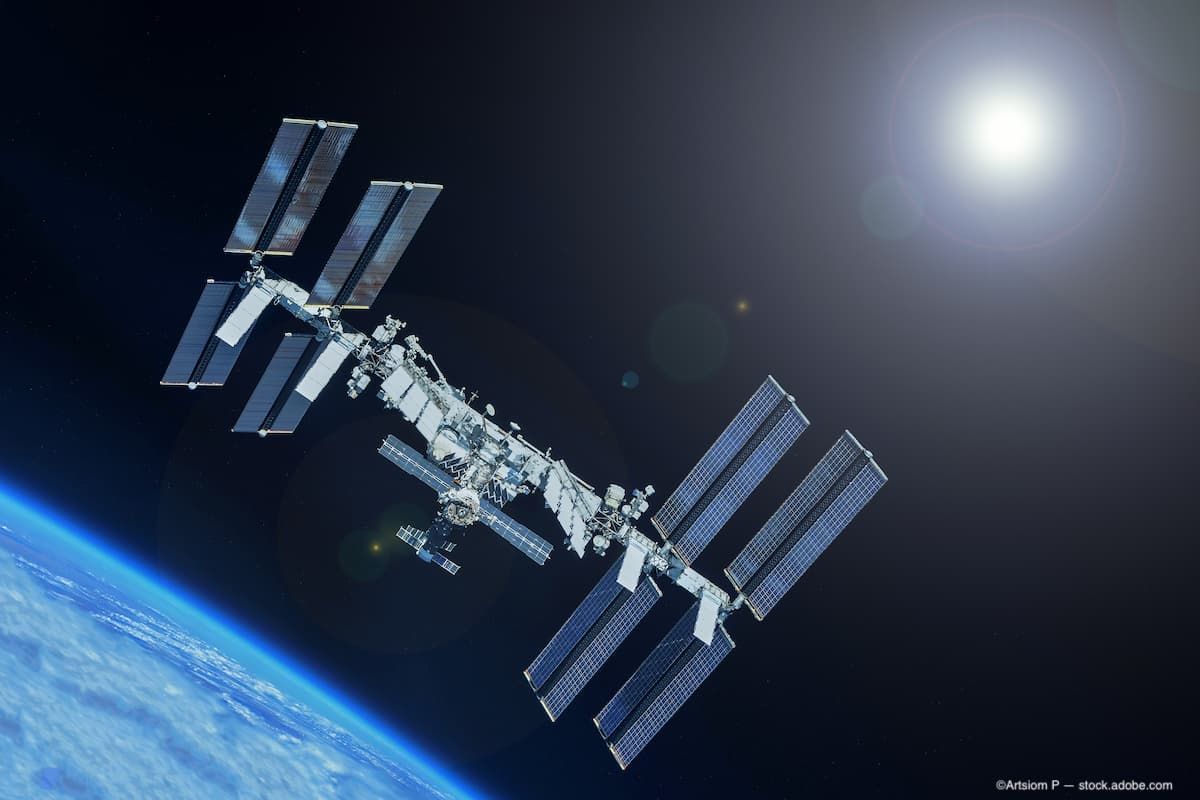- COVID-19
- Biosimilars
- Cataract Therapeutics
- DME
- Gene Therapy
- Workplace
- Ptosis
- Optic Relief
- Imaging
- Geographic Atrophy
- AMD
- Presbyopia
- Ocular Surface Disease
- Practice Management
- Pediatrics
- Surgery
- Therapeutics
- Optometry
- Retina
- Cataract
- Pharmacy
- IOL
- Dry Eye
- Understanding Antibiotic Resistance
- Refractive
- Cornea
- Glaucoma
- OCT
- Ocular Allergy
- Clinical Diagnosis
- Technology
Oculogenex conducting macular degeneration research in collaboration with International Space Station
(Image Credit: AdobeStock/Artsiom P)

There are 40 mice headed to the International Space Station (ISS) as part of a payload with several other experiments to be tested on the ISS.
The mice are a part of a payload that was launched this week and is expected to dock with the ISS on Saturday, March 30, according to an ISS National Laboratory news release.1
Hema Ramkumar, MD, founder and CEO of Oculogenex, the company conducting the experiment, has been researching macular degeneration for 17 years.
In a news release, she pointed out that the disease has a great impact on a patient’s quality of life.
“For patients suffering from macular degeneration in the intermediate stage and advanced stages, this takes away people’s ability to read their own medications, do their own finances and their independence,” she said.
For the intermediate stage of macular degeneration, which Ramkumar’s efforts are targeting, the patients that have full independence and are looking at their future and don’t want it to get worse, and that is the focus of their therapy.
“The microgravity investigation could pave the way for future clinical trials and treatments, offering hope to those grappling with this debilitating condition,” Ramkumar added.
The gene therapy enhances cellular response to oxidative stress and prevents retinal cell death, an approach that aims to restore the functionality of damaged cells and prevent vision loss.
“As we age, an epigenetic switch stops cellular repair, leading to cell degradation,” Ramkumar explained. “Our gene therapy renews dormant retinal stem cells, enhances mitochondrial function, and prevents cell senescence and death,” she said. “By targeting this epigenetic switch, our therapy instructs cells to remain active and resilient, promoting repair and sustaining vision.”
Distinguishing itself from conventional therapies that typically address singular factors, Oculogenex’s gene therapy will target the root causes of dry macular degeneration at the intermediate stage, for which there are currently no treatment options.
Female rodents on the space station will be used to conduct this experiment, considering that macular degeneration disproportionately affects women. Spaceflight will serve as a disease model for age-related macular degeneration, with oxidative stress induced by spaceflight mirroring pathways observed in patients on Earth.1
In space, spaceflight-associated neuro-ocular syndrome (SANS) can happen to astronauts after six months.
Kristin Kopperud, science program director, biological sciences at the ISS National Laboratory told Scripps News that when you see astronauts floating and their hair is in the air, the same thing is happening to the fluids inside their bodies.2
“And it can cause damage that mimics macular degeneration and other diseases on Earth,” she told Scripps News.
Moreover, Ramkumar pointed out that by harnessing the distinctive conditions of spaceflight, researchers aim to gain invaluable insights into the potential of spaceflight as a model of dry AMD.
“We anticipate our transformative gene therapy strategy will translate into improved and preserved vision for the millions living with dry macular degeneration,” she said.
Oculogenex received funding for this investigation through the Technology in Space Prize, funded by Boeing and the Center for the Advancement of Science in Space, manager of the ISS National Lab, in partnership with the MassChallenge startup accelerator program.
Since its inception, the prize has provided approximately $20 million in funding to 32 projects for research and development sponsored by the ISS National Lab.
